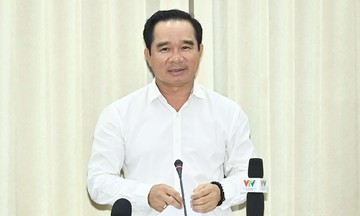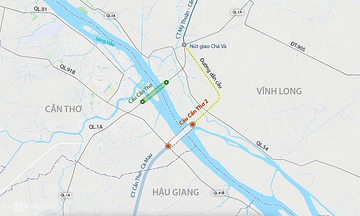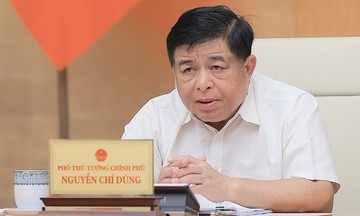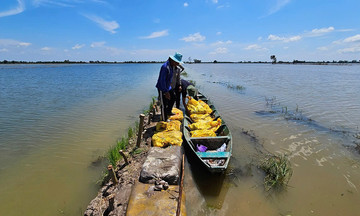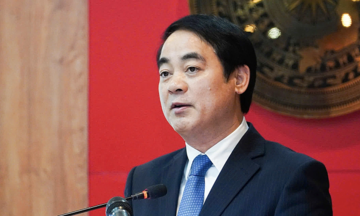On the afternoon of 9/9, presiding over a meeting to implement Resolution 71 of the Politburo concerning breakthroughs in education and training, General Secretary To Lam highlighted core aspects of the resolution. These include the establishment of national target programs; development of preschool, general education, and higher education; innovation of curriculum, content, and mechanisms; ensuring adequate facilities, schools, classrooms, and teachers; and addressing shortcomings and negative practices within the sector. He stressed that these requirements need to be institutionalized, implemented concretely, with clear responsibilities assigned, and detailed timelines established for completion.
He emphasized that the tasks outlined for 2025 must be implemented immediately, ensuring both progress and quality "so that the people and society can clearly see the groundbreaking changes brought about by the resolution.”
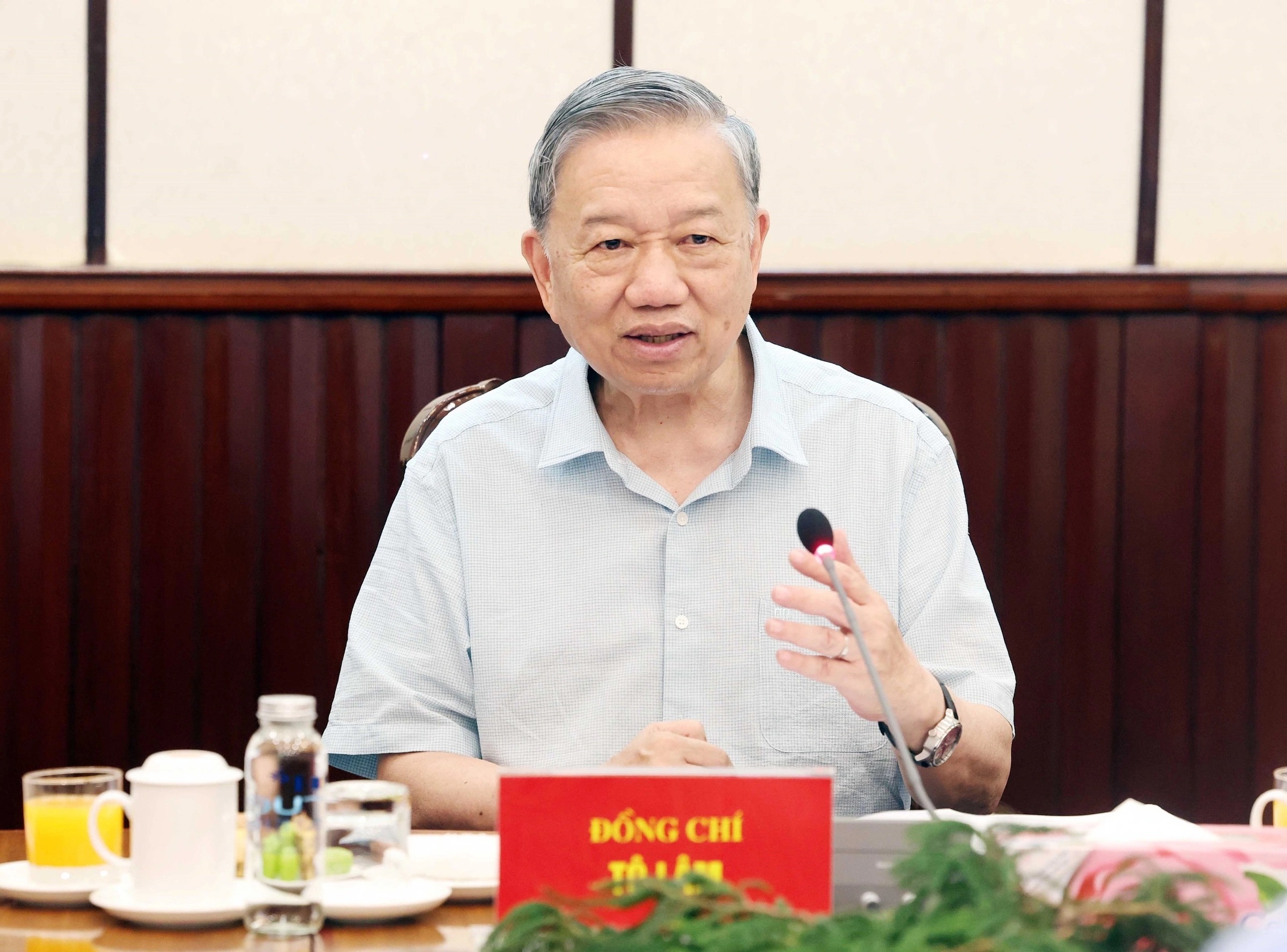 |
General Secretary To Lam speaking on the afternoon of 9/9. Photo: TTXVN |
A key component of the resolution is the requirement to evaluate the general education curriculum and move towards establishing a unified national textbook system. "Resolution 71 addresses this, and teachers and parents are asking when this will be achieved. They are saying that this academic year (2025-2026) is passing, so will it happen next year? The education sector must answer this. I believe further delays are unacceptable. The ultimate goal is to improve the quality of teaching and learning," the General Secretary stated.
Reporting at the meeting, Minister of Education and Training Nguyen Kim Son stated that the Ministry has integrated the contents of the resolution into three draft laws and two draft resolutions of the National Assembly. In September, several decrees on tuition fees, student support, and universal preschool education will be submitted to the Government. In 2025, the Ministry plans to invest in 100 new schools or upgrade and renovate existing ones in 18 border provinces and cities, with completion targeted before August 2026.
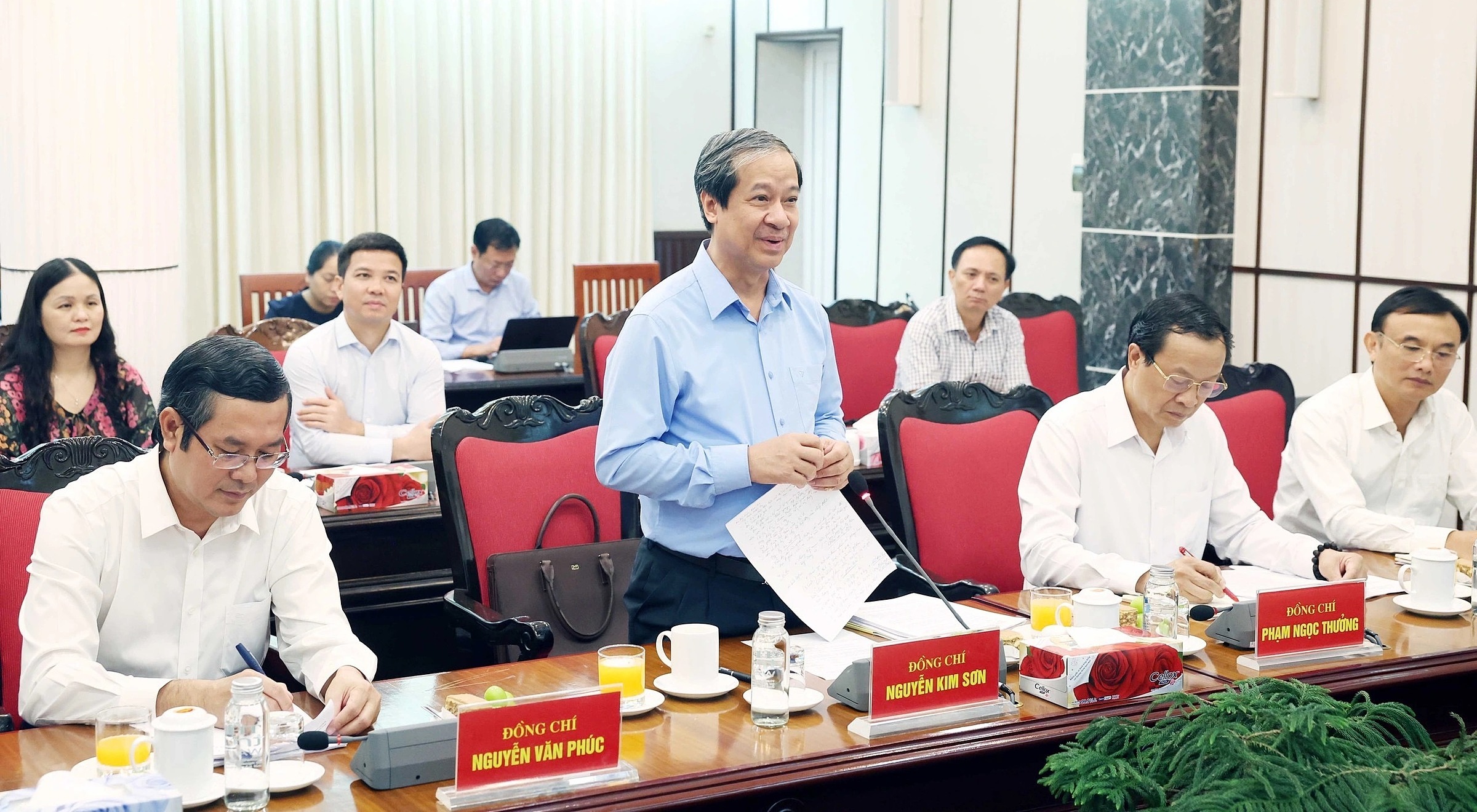 |
Minister of Education and Training Nguyen Kim Son speaking on the afternoon of 9/9. Photo: TTXVN |
According to Resolution 71, dated 22/8/2025, issued by the Politburo, the education sector must develop synchronously from preschool to general education and higher education. It must ensure adequate facilities, classrooms, and teaching staff, address limitations and negative issues, and implement specific preferential policies for teachers. The goals by 2030 are to achieve universal preschool education for children aged three to five, complete compulsory education through lower secondary school, and have at least one Vietnamese university ranked among the top 100 globally in specific fields.
Resolution 71 also mandates a review of the general education curriculum to ensure a unified national textbook system, with the aim of providing free textbooks to all students by 2030.
Since 2020, the new general education program has been implemented under the "one program, multiple textbooks" policy of Resolution 88/2014 of the National Assembly. This policy aims to end publishing monopolies and encourage the socialization of textbook development. Each subject can have one or more textbooks; the provincial People's Committee decides which textbooks to use consistently within their locality.
Currently, there are three sets of textbooks from two publishing houses and several independent publications on the market. Around 12 million students in 9 grade levels have used the new textbooks, with hundreds of millions of copies distributed. Initially, the Ministry of Education and Training planned to compile a set of textbooks using a World Bank loan, but this has not yet been implemented for various reasons. The National Assembly subsequently decided that if each subject has at least one approved textbook, the state budget will not be used to compile additional ones.
In early September, the Ministry of Education and Training submitted to the Government a draft decree on tuition fee policies, including exemptions, reductions, tuition support, learning expense support, and service pricing in the education and training sector.
The Ministry has also drafted a decree on lunch support policies for primary and lower secondary school students in land border communes. A draft decree detailing universal education for children aged three to five is also being submitted to the Government for consideration and issuance this month.
The Ministry of Education and Training has selected 100 schools (including 83 new schools and 17 renovated, upgraded, and expanded schools) in 18 border provinces and cities for immediate investment in 2025, to be completed before 30/8/2026. These schools will receive modern investments, with adequate facilities for learning, cultural and spiritual development, and living conditions.
Vu Tuan



